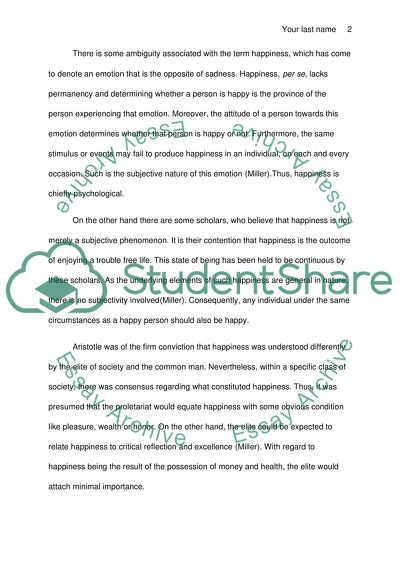Cite this document
(“What is Happiness Essay Example | Topics and Well Written Essays - 1000 words”, n.d.)
Retrieved from https://studentshare.org/philosophy/1426790-happiness
Retrieved from https://studentshare.org/philosophy/1426790-happiness
(What Is Happiness Essay Example | Topics and Well Written Essays - 1000 Words)
https://studentshare.org/philosophy/1426790-happiness.
https://studentshare.org/philosophy/1426790-happiness.
“What Is Happiness Essay Example | Topics and Well Written Essays - 1000 Words”, n.d. https://studentshare.org/philosophy/1426790-happiness.


